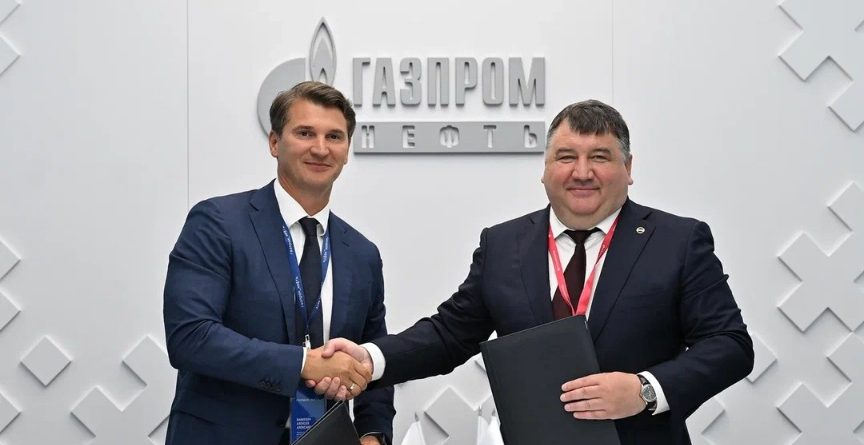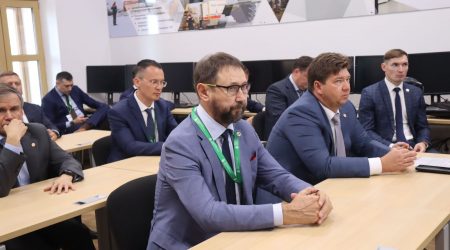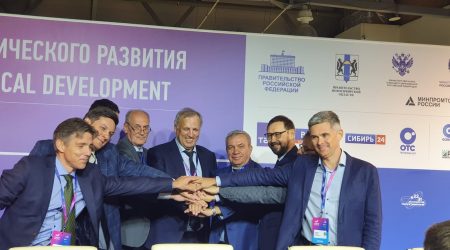KFU and Gazpromneft signed cooperation agreement in petrochemistry during Saint Petersburg International Economic Forum
Rector Lenar Safin arrived with a working visit to St. Petersburg to participate in SPIEF, one of the biggest global events in international economic cooperation.
On the sidelines of the forum, KFU and GPN signed the agreement on cooperation in the production of low-tonnage chemistry. The document was signed by Lenar Safin and Alexei Vashkevich, Deputy Head of the Department of Technological Development of Exploration and Production of GPN.
The cooperation is aimed at developing domestic technologies for the production of chemical products used in hydrocarbon production and treatment processes. Kazan University will coordinate R&D projects and develop formulations and raw materials in its own laboratories.
As the Rector noted, one of the important tasks of the oil and gas industry at present is to provide oil producing enterprises with specialized low-tonnage chemistry for drilling, production intensification, including hydraulic fracturing, enhanced oil recovery, preparation and transportation of hydrocarbon raw materials.
“Every year the volume of chemical reagents used for the development of hydrocarbon resources is growing. About several hundred thousand tons are produced annually,” Lenar Safin informed. “This is due to the depletion of current reserves and the transition to the development of complex geological fields. In this regard, we are facing the task of rapid localization of effective chemical reagents to address the challenges of the industry, and under this agreement this work will be launched. Gazpromneft t is one of our major strategic partners. And the long history of our cooperation shows that together we achieve high results”.
The new agreement will help combine the industry expertise and industrial capabilities of the leader of the domestic oil and gas market with the scientific and technological potential of KFU to develop Russian low-tonnage chemistry. The partners will jointly form a single research and production chain – from the creation of new formulations to the production and sale of low-tonnage chemistry to enterprises of the fuel and energy industry of Russia.
It should be emphasized that such a system can be created on the basis of the petrochemical cluster in the Republic of Tatarstan. This will significantly increase the project efficiency and speed up the production of chemical products.









